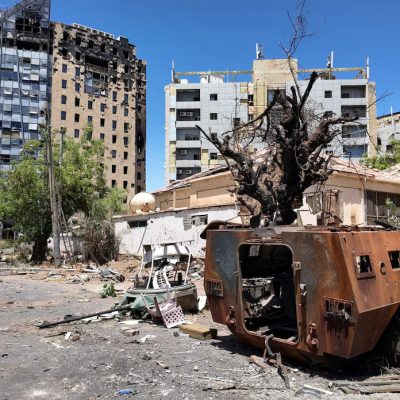10th of May 2019
On September 15, former Israeli defense minister and military chief of staff Moshe “Bogie” Yaalon addressed a Policy Forum at The Washington Institute. It was titled “An Inside Look at Israeli National Security Strategy”. The lecture was just four months after his retirement and four months before having the new US President, Mr. Donald Trump. One of the most important points was dividing the main parties in the Middle East into four major sectarian camps as next:
Despite the current threats, the geopolitical earthquake has created opportunities for Israel.
Currently, the Middle East is divided into four broad camps:
– Iran’s Shiite axis, including the Assad regime, Hezbollah, and Yemen’s Houthis;
– The Muslim Brotherhood camp, led by Turkish President Recep Tayyip Erdogan but also encompassing elements in Egypt and Hamas;
– The global jihadist camp, including the Islamic State and al-Qaeda;
– The Sunni Arab camp, which comprises Saudi Arabia, Egypt, Jordan, Gulf states, and others.
He saaslo said “Israel and the latter camp share several common adversaries, and while their cooperation is already robust (albeit quiet), it is in their mutual interest to increase it even further.”
He continued “The United States should join Israel in publicly aligning with the Sunni Arab camp.” End quote.
After about two years or more, the US started to withdraw from the Iranian nuclear agreement and imposes harsh sanctions on Iran, the rogue state, such as forbedding Iran from exporting its oil and listing the IRGC is a terrorist organization. Today, the US is deploying its strategic naval and air force units to the Arabian Gulf region, which possibly could be for the next purposes:
- Deter Iran and other competitor major powers and prove the US strength.
- The possibility that Iran may not to comply with US sanctions.
- The possibility of a hostile Iranian action.
- To force Iran into a weaker negotiating position.
- Training the forces of the US Central Command on deployment in its areas of operation in the Indian Ocean and the Arabian Gulf.
Accordingly, I expect the Iran’s courses of action to be within two possibilities.
First: Iran continues to sell oil to China and possibly other countries and withdraws from its commitment to the terms of the nuclear agreement “the Joint Comprehensive Plan of Action (JCPA)”.
Second: With the US insisting on its sanctions on Iran and preventing it from selling oil on one hand, and Israel’s continued strike on Iranian forces in Syria, and since the agreement in southern Syria is no longer feasible (as Iranian-backed forces approach the occupied Golan Heights) With the Israeli forces, which will lead to the escalation of Israeli attacks and the possibility of the return of Hezbollah’s activity to the northern border with Israel). On the other hand, Iran may move to carry out one or both of the following actions:
– Direct strikes against strategic targets in some Gulf states and Israel and against US military bases in the Gulf region.
– Closing the Strait of Hormuz (which is the most difficult course of action).
Although the second possibility in this scenario is the farthest and the most dangerous possibility, but also it may be matching with what Israel had planned assisted by the US forces. I think that the main targets in Iran could be nuclear missiles, non-peaceful nuclear stations and the Iranian Revolutionary Guards positions. The US forces may also support the current Israeli attacks against Iranian elements inside Syria. However, this will require A UN approval to use military action against Iran, which is difficult to achieve.
This also may lead to the return of Hezbollah elements to attack Israel. These developments will make the situation of Russia in the region more critical and difficult; however, I think that Russia will work hard to contain and calm the situation to preserve its its gains. On the other hand, China may move politically in attempts to calm the situation, with the possibility of supporting Iran’s political position in attempt to create a balance which could support the stability in the region.
The US has earlier demanded the Gulf states to reduce oil prices in connection with the consequences of its economic sanctions on Iran. On the other hand, the economies of the Gulf states will be affected and may include further economic repercussions that include the whole region. The port of Duqm, which can receive oil and Gulf goods by road, is being prepared to be used for exporting the Gulf oil and goods by sea through the Indian Ocean and the Red Sea far from the Strait of Hormuz.
In any case, I don’t think that it is in the interest of the US to take a military strike against Iran or to support any movement in this direction. Neither the US nor our Arab region is prepared to bear the consequences of any wars, especially those involving directly regional and international forces. The wars in the region are acting by proxy. However, finally I can say that all possibilities are present.
Sayed Ghoneim, Major General (retired)
Fellow, Nasser Higher Military Academy
International Security Consultant and Lecturer
www.igsda.org





